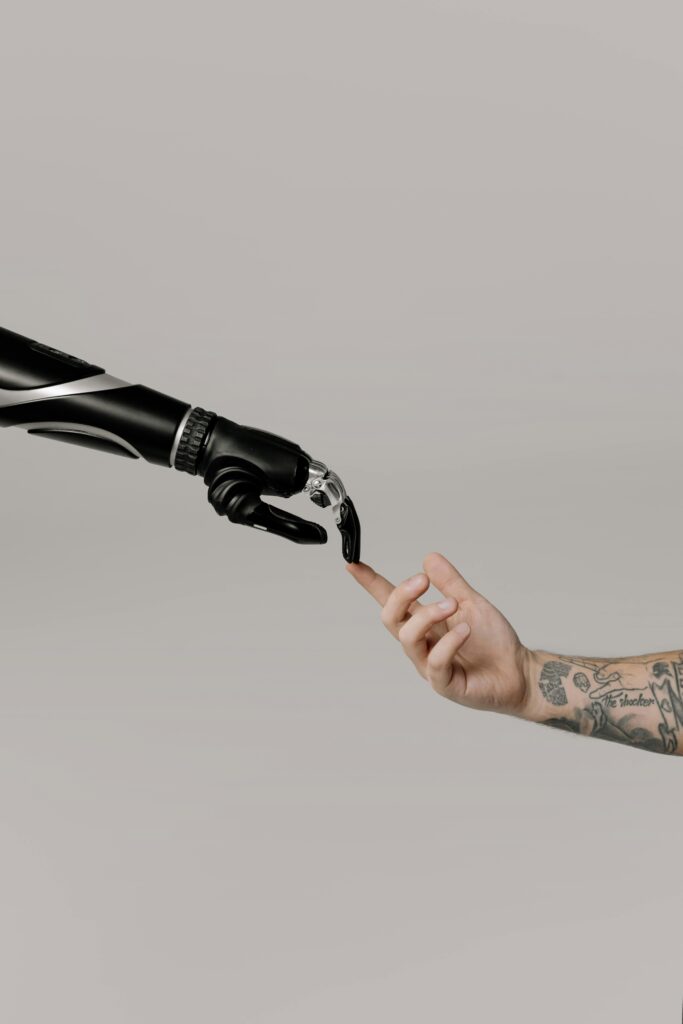How Artificial Intelligence Is Shaping the Future of Work
Artificial intelligence (AI) is no longer a futuristic concept; it’s already here, transforming the way we work. From automating repetitive tasks to enhancing decision-making processes, AI is making significant strides in reshaping industries, job roles, and workflows.

As AI continues to advance, its influence on the workplace is expected to grow, creating both opportunities and challenges for workers and employers alike.
This article explores how AI is changing the future of work, the roles it’s influencing, and the skills that will be in demand as automation and smart technologies become more integrated into daily operations.
- The Role of AI in Automating Routine Tasks
- How AI is Enhancing Decision-Making and Creativity
- The Impact of AI on Job Roles and Industries
- The Skills Required to Thrive in an AI-Driven Workplace
- Ethical Considerations and the Future of AI in Work
- Preparing for the AI Revolution: How to Stay Ahead of the Curve
- Conclusion
The Role of AI in Automating Routine Tasks
One of the most significant ways AI is shaping the future of work is through automation. AI systems can handle repetitive, time-consuming tasks that would otherwise take up a significant portion of human workers’ time. Examples include data entry, customer service chatbots, and inventory management. By automating these processes, AI allows employees to focus on higher-value work, increasing overall efficiency and productivity.In addition to saving time, automation can also help reduce human error and improve accuracy. However, this shift raises questions about the future of low-skilled jobs and the need for workers to adapt by acquiring new skills or moving into roles that require more complex decision-making or creative thinking.
How AI is Enhancing Decision-Making and Creativity
While AI is often seen as a tool for automation, it is also becoming an important decision-making aid. With the ability to analyze vast amounts of data in real-time, AI can provide valuable insights that help businesses make informed decisions faster and more accurately. AI-driven tools are already being used in sectors like finance, marketing, and healthcare to detect patterns, predict trends, and recommend strategies.
Beyond decision-making, AI is also enhancing creativity in areas like design, marketing, and content creation. AI tools can suggest new ideas, optimize designs, and even assist with brainstorming. For example, AI can analyze consumer preferences to help marketers create more personalized campaigns or assist graphic designers in generating unique visuals.
By taking over routine analysis and ideation tasks, AI frees up human creativity and strategic thinking, allowing employees to focus on higher-level innovation.
The Impact of AI on Job Roles and Industries
AI is not only automating tasks, but also transforming entire job roles and industries. While some jobs are at risk of being replaced by machines, others are being redefined. Roles that require a combination of technical expertise and human judgment—such as healthcare professionals, engineers, and creative directors—are evolving to incorporate AI tools that support decision-making, diagnosis, and creative processes.
However, AI’s influence also raises concerns about job displacement. Lower-skilled and manual labor jobs, such as assembly line workers or call center agents, are more likely to be affected by automation. On the other hand, AI-driven sectors, including data science, machine learning engineering, and cybersecurity, are seeing significant growth.

As AI continues to advance, it’s essential for workers to stay adaptable and focus on roles that complement AI rather than compete with it.
The Skills Required to Thrive in an AI-Driven Workplace
As AI continues to shape the workforce, the demand for new skills is growing. Workers must develop competencies that are complementary to AI systems. These include:
Technical skills: Understanding AI, machine learning, data analysis, and automation tools will be crucial for many jobs.
Critical thinking and problem-solving: AI can analyze data, but humans are needed to make final decisions and address complex problems that require creative thinking.
Emotional intelligence: Skills such as empathy, communication, and collaboration will continue to be valued in areas where human interaction is key, such as healthcare, education, and customer service.
Investing in these skills will help workers remain relevant and valuable in an increasingly automated world.
Ethical Considerations and the Future of AI in Work
As AI becomes more integrated into the workplace, ethical concerns are becoming increasingly important. Issues such as data privacy, bias in AI algorithms, and the potential for job loss must be addressed to ensure that AI benefits all workers and industries.
For instance, AI systems rely on vast amounts of data, which raises concerns about the security and privacy of that data. Additionally, AI algorithms may unintentionally perpetuate existing biases, leading to unfair decision-making. As AI continues to evolve, it will be crucial for businesses and governments to establish ethical guidelines and regulations to manage these risks.There is also the ethical question of job displacement. While AI may improve efficiency, it could also create significant inequalities in the labor market. To ensure a positive future, society must find ways to balance the advantages of AI with the need to protect workers from displacement and ensure fair access to opportunities.

Preparing for the AI Revolution: How to Stay Ahead of the Curve
As AI transforms industries, it’s important for workers and employers to be proactive in preparing for these changes. Staying ahead of the curve involves:
Embracing continuous learning: Keep up with the latest trends in AI and related technologies. This can be done through courses, webinars, or attending industry conferences.
Fostering collaboration between humans and AI: AI will be most effective when used to complement human skills. Encourage collaboration between human workers and AI tools to maximize efficiency.
Encouraging innovation: Explore how AI can help improve workflows, products, and services. Innovation should be at the heart of any AI adoption strategy.
By being proactive and continuously upskilling, workers can position themselves to thrive in an AI-powered future.
Conclusion: AI as an Opportunity for Growth and Innovation
AI is undoubtedly changing the future of work, but it doesn’t have to be seen as a threat. Instead, it’s an opportunity for growth, efficiency, and innovation. By understanding how AI works, how it’s impacting various industries, and what skills are required, you can not only adapt to these changes but leverage them to your advantage.
As we move into an AI-driven future, it’s important to remember that AI will not replace human workers, but rather transform how we work. Embracing AI and its potential will allow businesses and workers alike to create smarter, more efficient, and more creative solutions for the challenges ahead.